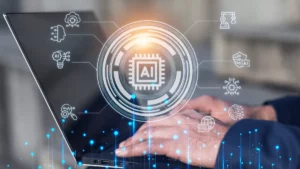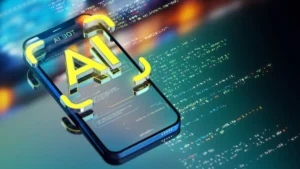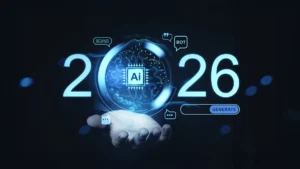Have you ever wondered “is Google using AI to write code?” At first, it might sound like science fiction, but Google has been actively integrating AI into its coding workflows for several years.
The company’s goal is not to replace software engineers but to enhance productivity, reduce repetitive tasks, and accelerate software development. AI now assists in generating code snippets, writing tests, suggesting improvements, and even detecting bugs.
In this article, we explore how Google uses AI in coding, its benefits and limitations, implications for developers, and what the future holds. We will also include actionable insights for teams and individuals who want to adopt AI-assisted coding effectively.
How Google Uses AI in Software Development
Google has developed a wide range of AI tools to support software engineers. These tools do not replace humans but act as coding assistants, making development faster and more efficient.
Inside Google, AI tools can:
- Suggest code completions and boilerplate templates.
- Generate unit tests and documentation automatically.
- Identify bugs, performance issues, and security vulnerabilities.
- Recommend improvements for code structure and style.
Examples of AI Integration
- Jules – An internal AI agent capable of generating code, suggesting improvements, and creating test cases asynchronously.
- Firebase Studio AI Tools – Provides developers with code suggestions, autocomplete, and test generation for building apps.
- Code Review Assistants – AI scans pull requests to highlight potential errors or improvements before human review.
What “Writing Code” Means at Google

When we ask “Is Google using AI to write code?”, it’s important to understand that AI does not create entire software systems autonomously. Instead, it generates code fragments or suggestions that engineers review and integrate.
Google describes this as AI-assisted coding, where AI handles routine tasks, and humans focus on architecture, debugging, and creative problem-solving.
For example:
- AI can generate a function to validate user input.
- Engineers review it for efficiency, security, and best practices.
- AI can also create automated tests for the function, which developers then validate.
This approach ensures speed, accuracy, and maintainability, with AI acting as a co-pilot rather than a replacement.
Benefits of AI Code Generation
AI-assisted coding brings multiple advantages that improve the overall software development process. By leveraging AI, developers can focus on complex problem-solving while routine tasks are handled efficiently. Below, we break down each benefit in detail.
Increased Productivity
AI helps developers spend less time on repetitive coding tasks, such as writing boilerplate functions or generating standard tests. By automating these mundane activities, engineers can dedicate more time to designing innovative solutions, optimizing architecture, and tackling high-level challenges.
Productivity increases not just in speed but also in the quality of work, as humans can focus on tasks that require critical thinking.
Faster Development
With AI, functions, suggestions, and test cases are generated within seconds. This rapid generation accelerates the development cycle, enabling teams to prototype features quickly and iterate more efficiently. Developers no longer need to manually write every repetitive piece of code, which shortens project timelines and improves time-to-market for new products or updates.
Consistency
Maintaining consistent coding standards is critical, especially in large teams or projects with multiple contributors. AI ensures uniform code style, naming conventions, and structure across the codebase. By reducing human errors and deviations from standard practices, AI-generated code contributes to cleaner, more readable, and maintainable software.
Scalability
As projects grow, managing large and complex codebases becomes increasingly challenging. AI-assisted coding can handle repetitive or modular tasks at scale, allowing teams to maintain high productivity levels even as the project expands. It also supports seamless integration of new modules, ensuring that growth doesn’t compromise code quality or structure.
Learning Support
Junior developers benefit from AI-generated code by using it as a learning tool. Observing AI suggestions and solutions can help them understand best practices, coding standards, and efficient problem-solving techniques. This accelerates learning curves and provides a hands-on, interactive way to improve programming skills under the guidance of AI-assisted suggestions.
Limitations and Risks

AI-assisted coding is powerful, but it comes with certain limitations and risks that developers must be aware of. While AI can generate code quickly, it may not fully understand the broader context of a project or complex business logic.
This can lead to errors, inefficiencies, or solutions that are technically correct but misaligned with project goals. Additionally, relying too heavily on AI may cause developers to underdevelop their own coding and problem-solving skills. Human oversight is essential to ensure quality, maintainability, and security in AI-generated code.
Key Limitations and Risks of AI Code Generation
-
Quality Control Issues – AI-generated code can contain bugs, inefficiencies, or vulnerabilities that require human review.
-
Technical Debt – Blindly accepting AI suggestions may lead to long-term maintenance problems.
-
Over-Reliance on AI – Excessive dependency on AI can reduce hands-on skill development for developers.
-
Context Understanding Limitations – AI might misinterpret complex project requirements, leading to inappropriate solutions.
-
Security Risks – Without proper review, AI-generated code could introduce vulnerabilities into the system.
Current Status: Is Google Using AI to Write Code?
Google is actively using AI to support a significant portion of its coding processes. According to CEO Sundar Pichai, over 25% of new code at Google is AI-assisted, highlighting the company’s commitment to integrating AI into software development.
While AI is increasingly automating routine and repetitive tasks, effective human oversight remains essential; for a deeper look at how these dynamics are playing out today, check out our detailed article on the current situation with AI.
Common applications include writing boilerplate code, generating unit tests, suggesting simple functions, and optimizing existing code for better efficiency. Engineers review and refine these suggestions to ensure quality, security, and maintainability.
Implications for Developers and Teams

AI-assisted coding at Google provides valuable lessons for developers and organizations. By observing Google’s approach, teams can adopt AI strategically while maintaining high coding standards and quality.
Key Implications for Developers and Teams
-
Adopt AI Tools Wisely – Use AI for predictable or repetitive tasks, but always review the output.
-
Maintain Skills – Developers must debug, refactor, and understand AI-generated code to retain expertise.
-
Implement Governance – Set clear policies and checkpoints for AI contributions to ensure maintainability.
-
Monitor Quality – Track technical debt, maintainability, and security of AI-generated modules.
-
Encourage Collaboration – Combine AI assistance with human creativity for optimal software solutions.
The Future of AI in Coding at Google
Google’s AI coding tools are advancing rapidly, and several trends are shaping the future. AI may handle increasingly complex tasks, while tools are becoming more accessible to external developers. At the same time, stronger governance will ensure code quality, security, and maintainability across projects.
As AI evolves, the role of developers will shift toward design, architecture, and oversight. Human review remains essential because AI can still generate code with errors or vulnerabilities. The future points to a hybrid model, where AI assists developers without replacing the creativity and problem-solving skills humans bring to software development.
Conclusion
To answer the central question: Is Google using AI to write code? – Yes, Google is using AI to generate parts of its codebase, but always under human supervision. AI improves productivity, speeds up development, and reduces repetitive work. However, engineers remain responsible for quality, security, and integration.
The future of software development will be hybrid, where AI assists humans, and engineers retain creative and strategic control. Adopting AI responsibly can help developers work faster, maintain high-quality code, and focus on innovation.










